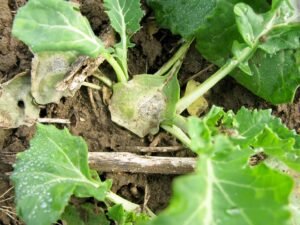By Rogers Aghan, March, 20, 2023, Headway in gene sequencing continues to uncover extensive knowledge that could have significant consequences for food production that is currently ongoing.
Research geared toward attaining important results has since focused on identifying the genes responsible for resisting adverse weather changes in pests
Recent progress in the genome sequencing of indigenous South African cattle breed have revealed the value of these breeds, more so, amid climate change. Albeit, far more research is necessary to realize the genetic potential of Drakenberger, Nguni and Bonsmara cattle, and how these traits could be an advantage to livestock farmers.
Linky Makgahlela, a senior researcher at the Agricultural Research Council reiterated at the Africa Agri Tech 2023 conference in Pretoria in mid-March, that these breeds required little management compared to their exotic counterparts because they were better adapted to local conditions.
“Farmers require to direct their focus on genes that could withstand high temperatures and possible increases in pest loads with climate change creating intense environmental stress. Farmers should be watchful not to overlook the genes that make the cattle so adaptable when crossbreeding with exotic breeds.”
Linky acknowledged that nearly 70% of the genes in indigenous cattle were coded for adaptation and function, and outweighed production by far.
“These animals focus more on their survival than their need to gain weight or increase fertility. This must be considered when selecting breeds considering it has an extensive effect on a farmer’s bottom line.” she stated.
Prof Christian Stutzer, a senior researcher at the University of Pretoria, explained that the issue of ticks, in specific, could be solved through a better understanding of genome sequencing. He stated that tick-borne diseases cost the global livestock industry between US$14 billion and US$18 billion (around R256 billion to R330 billion) per year, and that at least 80% of the global herd was affected by ticks.
The experienced researcher, nevertheless, noted that work on the genome sequencing of ticks had only scraped the surface.
“Compared to human genome, tick genomes are twice larger. We’ll be able to identify proteins that make ticks function, and possibly switch off specific genes that result in transmission of diseases once we unravel the full sequence.”
Considering the growing rate of antidote resistance having control over these proteins was of significant importance. Stutzer reiterated that years of the mishandling of chemicals had contributed to large-scale pest resistance, which could be nearing a critical point.
“If we fail to discover new ways to fight ticks, the industry will experience devastating losses,” he added.
Dr. Hennie Groenewald, CEO of Biosafety South Africa, called for reasonable gene-editing regulations that would allow the country to capitalize on the full potential of this technology.
Regulations should be focused on science rather than emotions. Regulating edited genes as genetically modified organisms would mean a missed opportunity to employ a game-changing technology, “he explained.
Groenewald said editing to eliminate the gene that caused cattle to grow horns was a good example because it meant that the cattle would no longer have to endure the painful horn-removal process.








